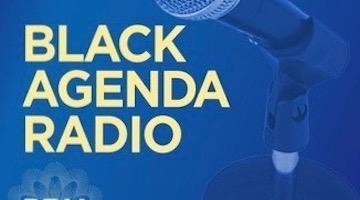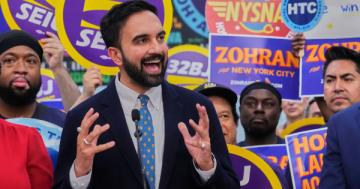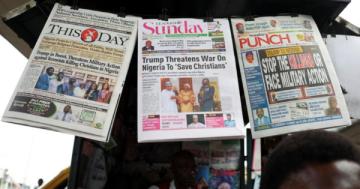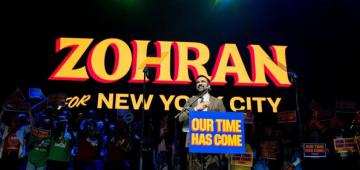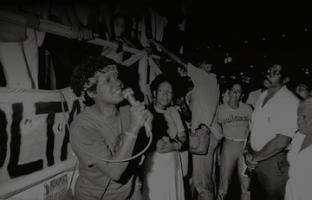Only policies that provide people with authority to hire and fire police, investigate, conduct hearings and decide punishment will end police brutality.
“What must be challenged is the power dynamics between the police and black people.”
In this series, we ask acclaimed authors to answer five questions about their book. This week’s featured author is Clarence Taylor. Taylor is Professor Emeritus of History at Baruch College, CUNY. His book is Fight the Power: African Americans and the Long History of Police Brutality in New York City.
Roberto Sirvent: How can your book help BAR readers understand the current political and social climate?
Clarence Taylor: This book does not just examine the little-known history of police brutality against black New Yorkers. It is a history of how black New Yorkers over decades challenged abuse at the hands of “New York’s finest.” The black challenge to police brutality has been fierce, especially as New York City’s black communities grew. But the anti-police brutality campaign has also been extremely difficult. One major reason the campaign has been so difficult is because of the resistance from the police, the police union, elected officials and citizens who, thanks to the media, popular culture, political leaders and others, have portrayed blacks as dangerous criminals who are a constant threat to white citizens.
An important story in this book is that those in power have not taken the initiative to stop police brutality. Instead, it has been the victims of police brutality that have embarked on a crusade to stop police domination of black people. Groups that have not received enough attention have led the campaign to end police abuse.
Fight the Power looks at the efforts of the black press, especially the Rev. Adam Clayton Powell Jr.’s the People’s Voice, the American Communist Party, the Nation of Islam, prominent civil rights leaders, grassroots activists, and legal and civil liberties organizations to end police abuse against black citizens.
“It has been the victims of police brutality that have embarked on a crusade to stop police domination of black people.”
One lesson from my book is that although the long campaign did not meet with immediate success, it did challenge the racist notion of presenting black victims as criminals. The activists and groups in the anti-police brutality campaign taught us the battle against police abuse is not just rogue cops. They emphasized that what must be challenged is the power dynamics between the police and black people. I argue that at the heart of police brutality is the amount of power police have over citizens, thus, reform measures, such as racial sensitivity training and community policing will not work. A sure way of eliminating police brutality is to reduce the power of the police and to find ways to allow citizens to determine how police operate in their communities.
What do you hope activists and community organizers will take away from reading your book?
One important point the book makes is that relying on those in power to end police brutality has never worked. Many in power usually side with the police because politicians have exploited the crime issue. Even when there have been sympathetic elected officials who promised to take steps to end police abuse, the forces of reaction have silenced them. Organized resistance has been the most effective way of challenging police brutality.
Another important point I want activists and community organizers to understand is that organized campaigns to stop police brutality have met strong resistance from the police and their allies in City Hall, thus making police brutality one of the most difficult civil rights issues black people face. One reason the PBA and the police have been such an effective opponent of the campaign to end police brutality is because the Patrolmen’s Benevolent Association has gained a great deal of political power. During its 1966 successful campaign to eliminate the Mayor John Lindsay’s civilian complaint review board, the PBA employed a false narrative to disband the board. The narrative that any attempt to empower citizens by giving them an opportunity to determine how police operate in their communities, only empowered criminals and handcuffed the police. The false narrative provided the police with a weapon they could employ anytime there was an effort to curtail their power.
Reform measures such as hiring additional black and brown police, wearing body cameras, and creating civilian dominated investigative bodies without power to punish police offers who are found guilty of abuse, are useless. Citizens must have the authority to determine how police operate in their communities. This means ending criminalizing activities that were once viewed as non-criminal. Ending the broken windows policy would reduce the number of minor offenses that police use to arrest black and brown people.
We know readers will learn a lot from your book, but what do you hope readers will un-learn? In other words, is there a particular ideology you’re hoping to dismantle?
One assertion that I wish readers to unlearn is the view that good policing requires that police should have immense power with little or no restraint. Any attempt to reduce the power of the police would lead to a rise in crime.
Another assertion is that ordinary citizens don’t have any role in deciding how police should operate in their community. One popular false assertion I constantly hear is that there is no such thing as police brutality. Those who assert that they are victims of police misconduct do so to excuse their breaking the law.
Other false assertions include:
- The mayor, the NYPD and city officials are doing all that they can to eradicate police brutality
- Police brutality is seen as necessary force.
- Suspects are responsible for excessive force. If they obeyed police commands then they would not be subject to force
- Police should have wide discretion in enforcing the law.
- Addressing minor offenses will prevent more serious crimes.
- Broken windows has been successful in radically reducing crime.
Stop, Question and Frisk is not discrimination. The only reason more blacks and Latinos are stopped is because they commit more crimes.
- The Police Department should determine if police violated the law or police policy.
- Citizens should not have any role in the hiring of police.
- Citizens are not qualified to evaluate police performances
- Black people who are arrested and who have been assaulted by the police are usually guilty of a crime.
- The call for people having greater authority over the police is made by those who are anti-police
Who are the intellectual heroes that inspire your work?
There are a number of intellectuals who inspire my work. What they all have in common is they with great courage challenged racism, militarism, class oppression and many opposed sexism.
W.E.B. Du Bois
Martin Luther King Jr.
C.L.R. James
Malcolm X
Angela Davis
James Baldwin
Glen Ford
Gerald Horne
Bell hooks
Bill Fletcher Jr.
Karl Marx
*Ella Baker
*Frederick Douglas
In what way does your book help us imagine new worlds?
My book moves us away from liberal schemes of addressing police brutality such as diversity training, sensitivity training, making the force more diverse, better technology such cameras, community policing, and advisory civilian boards. Instead, I maintain that citizens must be given greater authority in determining how police will operate in their communities.
Part of citizens’ power is the ability to evaluate the performance of police in their communities. The community should be able to report police abuse without fear of retaliation from the police. People should determine which policies the police will adopt in their community. Community policing and neighborhood policing are both top down policies pushed by those in power to address police brutality and have done little to stop police assault. Both have been ineffective because the terms are determined by the police. The power dynamics remain the same. Only policies that provide people with authority to hire and fire police, investigate, conduct hearings and decide punishment will end police brutality.
Roberto Sirvent is Professor of Political and Social Ethics at Hope International University in Fullerton, CA. He is co-author, with fellow BAR contributor Danny Haiphong, of the new book, American Exceptionalism and American Innocence: A People’s History of Fake News—From the Revolutionary War to the War on Terror.
COMMENTS?Please join the conversation on Black Agenda Report's Facebook page at http://facebook.com/blackagendareportOr, you can comment by emailing us at comments@blackagendareport.com











